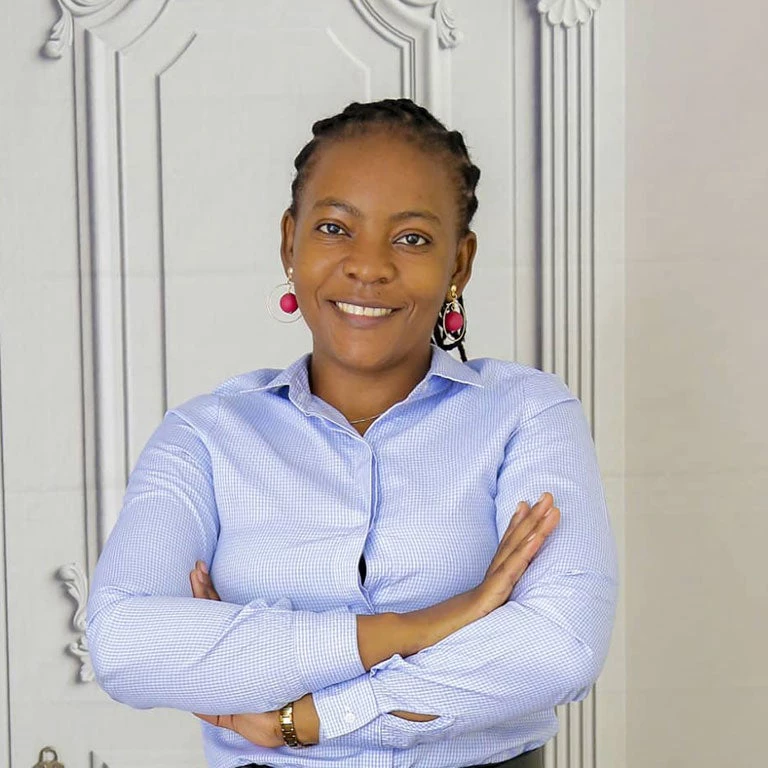 Rural community group photo with women in the front, surrounded by children in Zambia.
Rural community group photo with women in the front, surrounded by children in Zambia.
As thousands of delegates arrived in Sharm El-Sheikh, Egypt, for COP27, we were on the road in rural Zambia. We were on our way to meet with communities and complete a successful World Bank climate adaptation project. The timing of our mission seemed like an interesting coincidence; it took place on the eve of COP27, dubbed the “Implementation COP” and the “African COP” to highlight the need to implement climate pledges and drive more action on the ground, especially in Africa.
At a COP (United Nations climate change conference), climate adaptation is an agenda, a workstream, a building block, or a side event. For millions of subsistence farmers in rural Zambia, climate adaptation is necessary for survival. They struggle day-to-day to cope with increasing temperatures, more frequent floods, and more severe droughts. By any standard, they are among the poorest and most vulnerable people in the world, many living on $0.06 per day and suffering from chronic food shortages for as much as half the year (based on a 2012 assessment by Concern Worldwide).
It is precisely these populations that the Bank’s Zambia Strengthening Climate Resilience Project sought to help. Funded by the Climate Investment Funds’ Pilot Program for Climate Resilience (PPCR) with US$50.6 million, the project aims to strengthen Zambia’s institutional framework for climate resilience and improve the adaptive capacity of vulnerable communities in the Barotse sub-basin. The project targeted the poorest and most vulnerable communities in the rural areas of the Western Province. It built institutional capacity of the national, provincial, and local systems to mainstream climate adaptation and resilience into development. The project has disbursed and implemented a total of 2,233 sub-grants, most of them at the community level. These grants have directly benefited almost 130,000 households (over 580,000 people). About 42% of the recipient households are headed by women. These results have exceeded the targets set out in the project two- to three-fold.
Our three-day field visit took us to the Nkeyema District, the Mongu District, and the Nalolo District, where we visited six sub-projects supported by PPCR. One of the sub-projects was led by Mulonda Lwilu, a community leader from Lubosi Ward of Nalolo District. Lwilu’s community consists of rice farmers. Due to the seasonal nature of rice farming, they have no income when the rice season is over or during periods of drought.
Fifteen months ago, Lwilu applied for and received a community-level grant equal to about US$22,000 to implement an integrated water project. With the grant money, the community constructed a solar-powered borehole that provided them with reliable access to water. They also constructed a fishpond and a piggery and bought 5,000 fingerlings for the pond, two breeding pigs, feed and vaccines. Community members received training from government agricultural extension officers in fish farming and pig farming and learned about wastewater recycling, safety, and environmental management.
"Fifteen months ago, Lwilu applied for and received a community-level grant equal to about US$22,000 to implement an integrated water project. With the grant money, the community constructed a solar-powered borehole that provided them with reliable access to water. They also constructed a fishpond and a piggery and bought 5,000 fingerlings for the pond, two breeding pigs, feed and vaccines."

Lwilu was all smiles when we spoke with him. He was about to harvest the fish in the pond. Expected to total 500 kg, he will distribute some to participating members of the community and sell the rest at the market. With an expected value US$3-4 per kg, this will be a windfall for the community. The two breeding pigs multiplied to 22. The community sold four and reinvested the proceeds in purchasing feed and medicine. The community has also used the manure from the piggery as fertilizer and the water from the fishpond to grow leafy vegetables, such as rapeseed and cabbage. Thanks to the borehole and the availability of water, the community has been able to diversify their livelihoods, improve their diet and nutrition, and earn a little income to send their children to school. With access to quality water to drink, the community has also seen a drastic reduction in water-borne diseases.
Lwilu’s story does not end there. He has a plan for next year. He wants to construct two more fishponds and buy another 12,000 fingerlings. He wants to raise more fish in the ponds, or “in the bush”, as he puts it. He also wants to give one pig to each participating member of the community to raise on their own, in a pigpen, rather than “in the bush”.
Lwilu and millions like him across Zambia need world leaders and the international community to deliver on climate finance and climate ambitions. Please do not let them down.



Join the Conversation